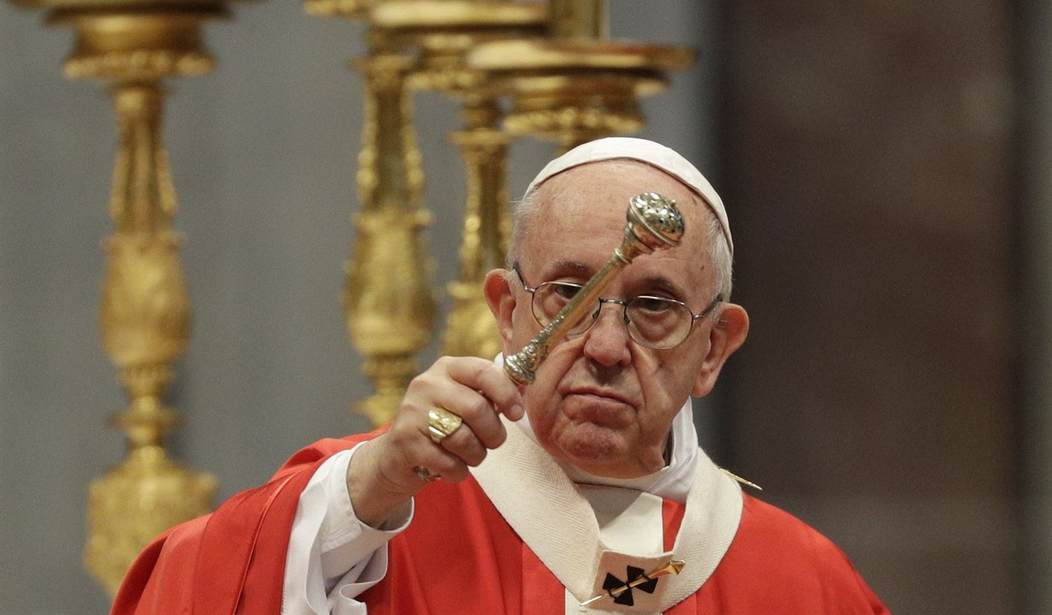Typically, when you walk into a Catholic Church there is a font for holy water. It's a sacramental, sacred sign meant to remind us of baptism. But one recent weekday, I dipped my hand into a familiar font in a prominent church in our nation's capital before morning Mass, and encountered it empty. Caffeine-less, I was confused. It was only later, when the sign of peace was skipped during Mass that I realized: coronavirus!
What bothers me about this is not the empty holy-water fonts per se. What seems off is that the response of Christians and all religious believers has to look different than that of the secular culture. I daresay the wider world needs us to have a different approach. When people are reading headlines and hearing news stories about closed churches and canceled Masses in Europe, that's not exactly inspiring.
One of my favorite quotes is from Pope Emeritus Benedict, in a letter on hope: "The one who has hope lives differently; the one who hopes has been granted the gift of a new life." That seems appropriate. And for goodness' sake, this is the season of Lent, a penitential time in which we remember to take stock of our lives and consider if we've been acting as we should, as God as called us to act. Fine about the handshakes and holy water, but what are we conveying about hope to the world, my fellow religious believers? (To those who do not have faith in God, I apologize for our confused and disappointing example -- now and on many other fronts.)
We Christians should live to love and serve God and others. What does it say if we are just as scared as everyone else of coronavirus? Why are most of us acting as if there's no such thing as redemptive suffering? That's no reason to run to coronavirus-infected communities, unless we are a doctor or nurse or someone else who can help. But, why are we watching news stories about its geographic spread with such pits in our stomachs? Is coronavirus exposing our unbelief?
Recommended
We never know the day or the hour of our death. We should do our utmost to be the people God calls us to be, because at any moment God could call us home.
Adrienne von Speyr, a Swiss medical doctor and mystic who died in 1967, seems to have our number here: "Lord, because we take your death so lightly that we rarely even think about it, the thought of our own death is also
strange and distant. Even when stern messengers forewarn us, we manage to stifle the thought of our death and to go on living as if our earthly existence would never end."
Then she prays: "Let us die as believers whose faith also shines upon the others, who assist at our death, brings them help now, and perhaps later, when their own hour comes, gives them consolation."
I can't help but think it's not an accident we're facing this potential outbreak during Lent. The Latin phrase "Memento Mori" -- remember you will die -- seems to capture the spirit that seems to be missing in the coronavirus frenzy. It may be coronavirus or old age or an accident that gets us, but we will die. In this current scare, can we take spiritual precautions on top of all the rules about sneezing and social distancing? Let us not distance ourselves from the Creator we say we believe in who made us for Himself -- always living in hope!
(Kathryn Jean Lopez is senior fellow at the National Review Institute, editor-at-large of National Review magazine and author of the new book "A Year With the Mystics: Visionary Wisdom for Daily Living." She is also chair of Cardinal Dolan's pro-life commission in New York. She can be contacted at klopez@nationalreview.com.)

























Join the conversation as a VIP Member